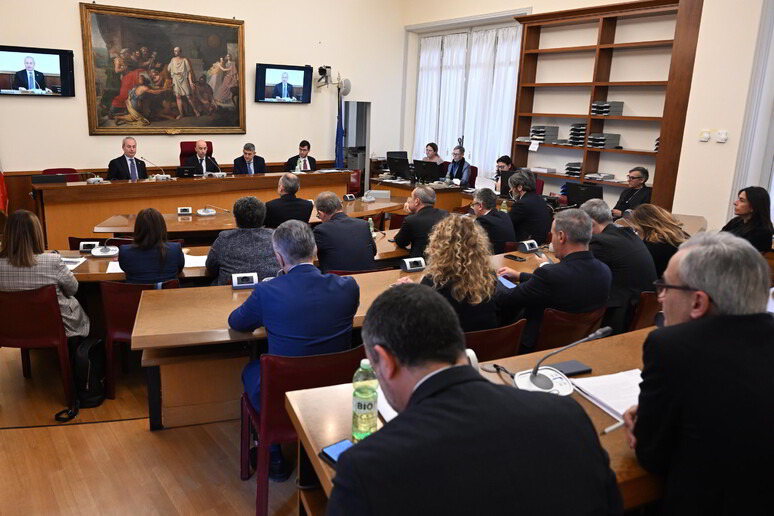(ANSA-AFP) - HASKOVO, 08 OTT - "Punish me, grab my hair, tell
me what you want," sang Bulgaria's raunchy folk-pop star Diona
as she entertained a cheering crowd of mostly teenagers at a gig
in the country's south. But "chalga", which blends Balkan and
Middle Eastern music, is coming under scrutiny after the country
was shocked by the harrowing case of a fan who was mutilated by
her boyfriend. Typically featuring scantily clad women singing
about sex, money and gangsters, chalga rose on the ruins of
communism in the 1990s. The genre -- which is also hugely
popular in Serbia -- sharply divides opinion, with critics
saying it perpetuates sexist stereotypes in a country plagued by
violence against women. In June outrage over the horrific ordeal
a young chalga fan suffered at the hands of her boyfriend
sparked rare protests against domestic violence. Unlike most
victims, 18-year-old Deborah Mihaylova went public, going on
YouTube to tell how he slashed her with a box cutter knife 21
times, broke her nose and shaved off her hair. She said she had
been regularly beaten and humiliated by the man, who would call
her "trash" as he punched and slapped her. The case prompted
lawmakers to amend a recently adopted law on domestic violence
and stiffen punishments, with the 26-year-old accused of
attacking Mihaylova charged with attempted murder. - 'Sick
minds out there' - But Bulgaria's music industry has repeatedly
dismissed claims that "chalga" is in any way connected to the
society's ills. Chalga's top promoter Pancho Zapryanov of Payner
Media blasted the criticism, saying that "sick minds out there"
shouldn't force them to "give up showing female beauty". And
fans like Viktor Panev at a concert in the southern town of
Haskovo, also disagree, saying "chalga" is to Bulgaria and
Serbia what "rap is to the West". Two 17-year-old girls, who
came to the free concert out of curiosity, told AFP that
"chalga" has a tight hold on attitudes in Bulgaria. Some
teenagers even resort to plastic surgery in an effort to
"resemble their idols", said one who gave her name as Kristina.
Her friend Styliana said it was "no surprise" that horrific
cases like that of Deborah Mihaylova are happening in Bulgaria,
where so far this year at least 15 women were killed by men they
knew, according to NGOs. But the case seems to have increased
awareness of violence against women, with over two-thirds
acknowledging it is "an important problem" in a recent poll, up
from 50 percent on previous surveys. Domestic violence cases are
also up, however, with the police probing about 600 in the first
six months of the year, up 174 from the same period in 2022. -
'Toxic culture' - After going public, Mihaylova's favourite
chalga performer urged her to try her luck as a singer herself
and offered to send her flowers. NGOs and experts, however,
continue to warn against chalga's "toxic" culture. "The
tolerance threshold for violence, particularly sexual violence,
is higher" in Bulgaria than in other European countries, said
psychologist Ani Torozova of the Animus association, which
supports victims of domestic violence. "Violence and chalga form
a vicious circle -- by despising the weakest, implicitly
praising corruption and degrading women," said Dilyana
Dimitrova, editor-in-chief of a Bulgarian cultural website. At a
recent demonstration in the capital Sofia, a woman who said she
was a victim of abuse, told AFP that many in the Balkan country
accept that a woman can be "enslaved by a man". She said she and
her baby were only able to leave her abusive partner because of
the help of her parents. vs/anb/ds/kym/fg
/ (ANSA-AFP).
ALL RIGHTS RESERVED © Copyright ANSA





